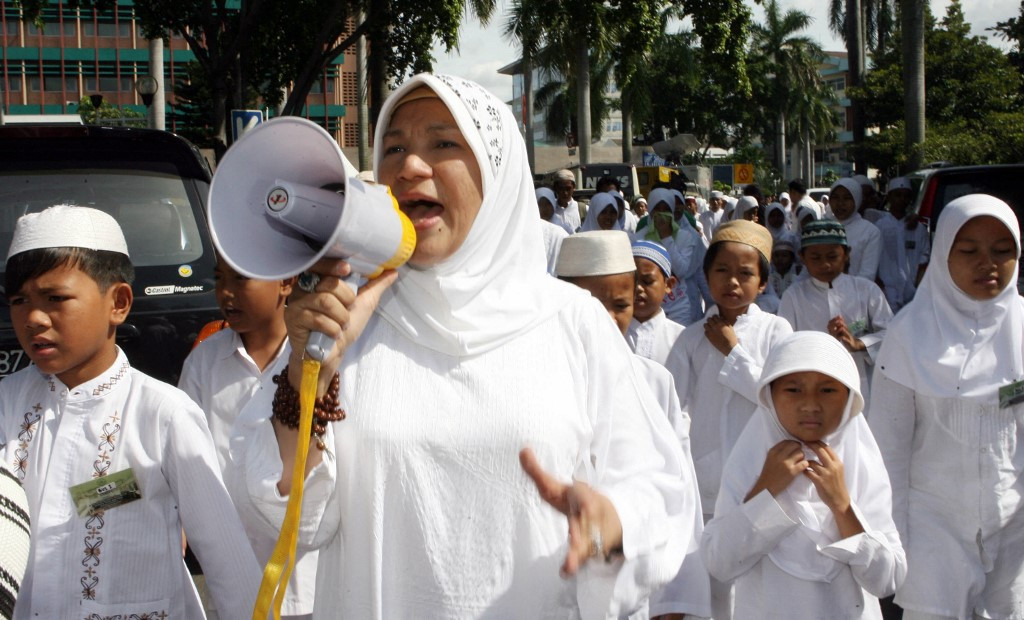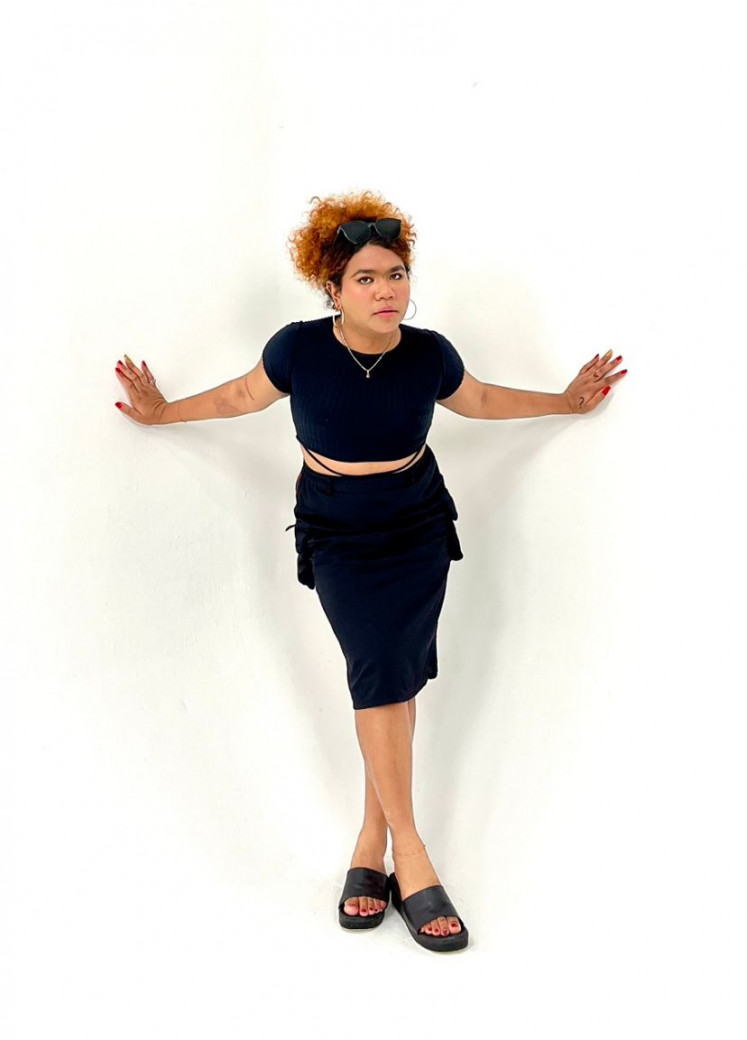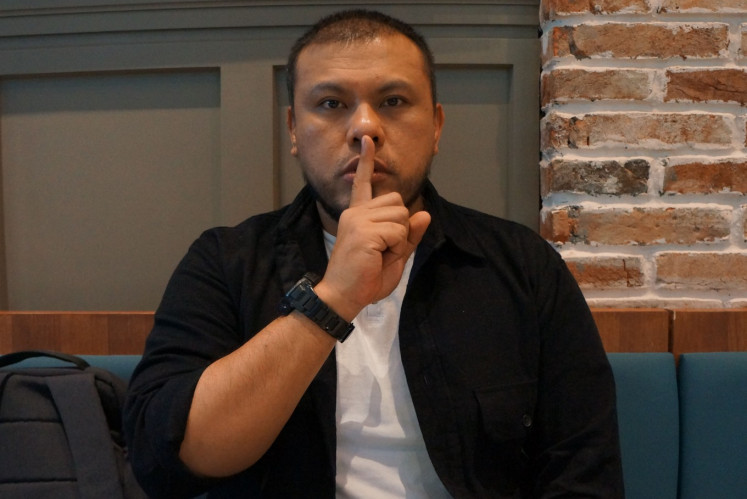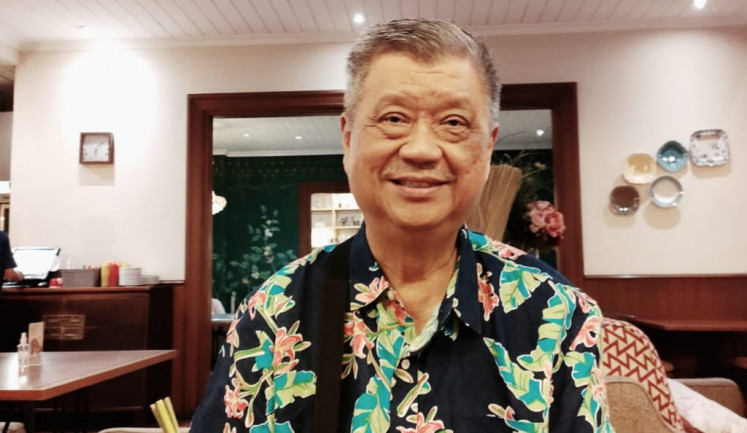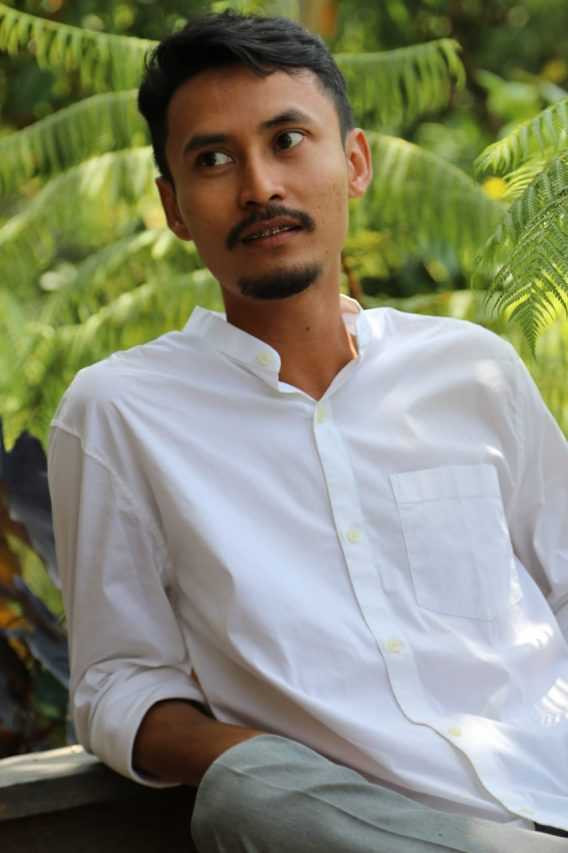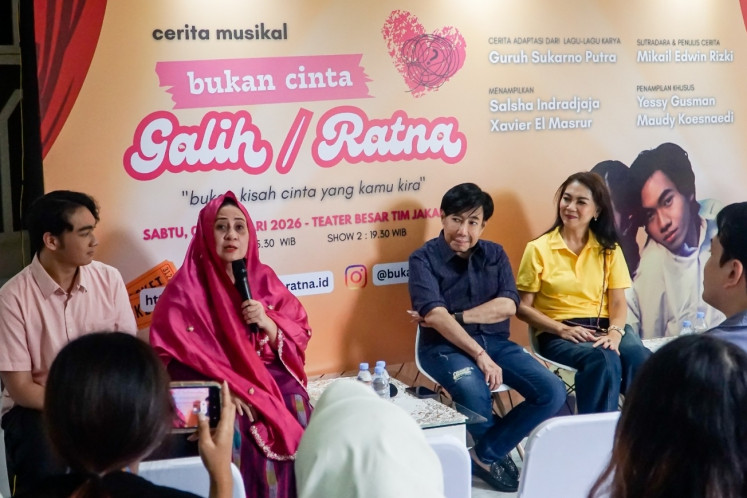Popular Reads
Top Results
Can't find what you're looking for?
View all search resultsPopular Reads
Top Results
Can't find what you're looking for?
View all search resultsIndonesian Icons: The complex legacy of Dorce Gamalama
Legendary entertainer Dorce Gamalama passed away on Wednesday after battling COVID-19 and diabetes complications. As an Indonesian icon, her life story is celebrated by many, including non-LGBT people.
Change text size
Gift Premium Articles
to Anyone
T
he “Indonesian icons" series offers an in-depth look at the elements and events that have shaped the country and defined national identity, from noteworthy people, culinary delights and historic locales to unforgettable moments.
Twenty-seven-year-old Carahanna Marianne Sam, or “Cara” for short, has nothing but respect and admiration for the late Dorce Gamalama, an Indonesian pop singer, actress, TV host and comedienne who passed away on Wednesday at the Pertamina Simprug Hospital in South Jakarta after battling COVID-19 and diabetes complications.
As a trans woman herself, Cara looked up to Dorce Gamalama, who she called a “trans icon.” When Cara was a child, however, being called “the next Dorce” was actually among the hurtful comments that she received for being, as she put it, “an effeminate boy.”
“I remember so many people told me that I would grow up to be like Dorce. At the time, I felt ashamed because [I thought,] what was that supposed to mean?” she told The Jakarta Post in an interview.
Cara, now a campaign manager at an NGO in South Jakarta, recalled growing up in Ambon, Maluku, knowing that there was something different about her. She remembered being “too scared and traumatized” to come to terms with her gender identity.
Being “different” at school did not help her, as classmates would often mock and bully her.
“My uncles and aunties from my father’s side mocked me as well,” she revealed, adding that “the next Dorce” comment also came from some of her family members.
Respect: As a trans woman herself, 27-year-old Cara looked up to Dorce Gamalama, referring to her as a “trans icon.” (Personal Collection/Courtesy of Carahanna Marianne Sam)Years and years went by before Cara eventually came to terms with her identity as a woman. She remembered that while the realization hit her in 2016, it was not until 2019 that she finally began joining the Women’s March in Jakarta to support women's rights and commemorate the birthday of Kartini, the country’s national heroine and women’s empowerment icon.
“That same year someone outed me to my family. So I decided to come out to my parents as well,” she said, adding that she began her medical transition in 2020.
Now, as an adult, Cara appreciates the late Dorce Gamalama as someone who paved the way for many trans women who came after her.
“I wish I could be 1 percent of how amazing [Dorce] was. If someone called me ‘Dorce’ now, I’d be like, ‘you mean a trans icon? Why thank you!’ She’s so amazing,” she said with a smile.
Some of Dorce’s accomplishments Cara highlighted include being the host of a popular daytime talk show, Dorce Show that aired from 2005 to 2009 on Trans TV. Dorce Show, which showcased Dorce’s comedic prowess and incredible warmth and kindness when interviewing people, was one of the television network’s top-rated programs at the time.
As a singer, Dorce received a certificate from the Indonesian Museum of Records (MURI) for releasing five studio albums in just five months between November 2005 and March 2006.
“[Dorce] was the first trans woman who was really well-known. She also gave back to the people and had many adopted children. Many trans women out there see her as an example. [She showed us that] we can live out there as a woman and still be amazing and respected,” said Cara.
Dorce’s legacy as an entertainer is also recognized by people from outside the transgender community.
Ricky Abraham, a 33-year-old entertainer in Bandung, West Java, recalled one episode of Dorce Show where the guests were Indonesian Muslim women who wore headscarves and came from a Quran study group. For Ricky, this episode showcased Dorce’s ability to bridge two different views.
“[Dorce] was accepted as a woman and her career paved the way for transgender people who wanted to become someone to be reckoned with in the entertainment industry,” he said.
As an actress, Dorce Gamalama was known for her role in movies such as Dorce Sok Akrab (Super-friendly Dorce) in1989 and Dorce Ketemu Jodoh (Dorce Finds a Soulmate) in 1990.
Famous Indonesian film directors Joko Anwar and Hanung Bramantyo praised Dorce separately.
“Bunda Dorce was among the first few to be open about her transition and taught us about pride. She wasn’t only brave. She was a hero,” said Joko. “Bunda” is Indonesian for “mother” but also a term of endearment for women who are seen as having motherly qualities.
"She was a hero": Filmmaker Joko Anwar praises Dorce as one of "the first few to be open about her transition, and taught us about pride". (JP/Jessicha Valentina)Hanung said that he already admired Dorce when she first entered the entertainment industry back in the 1980s.
“Beautiful, brave, multitalented, but still elegant. Many transgender actresses were stuck in stereotypes by making fun of themselves. But Mbak Dorce was different. She showcased amazing talents, from singing and stand-up comedy to acting,” Hanung said in a text message.
On her comedic prowess, Bali-based stand-up comedian Reggy Hasibuan noted that Dorce’s presence in Indonesia’s entertainment industry was an anomaly due to the conservative nature of the society.
“In the early years of her career, she still made trans jokes. Understandable considering the context at the time. But she changed, in later years she steered clear of any trans jokes and was still a performer. Not only did she stay true to her identity, she was also not trapped in a niche field of humor,” said Reggy.
Even those outside the entertainment industry recognized Dorce. Indonesian tennis legend Yayuk Basuki recalled meeting Dorce in person at a social gathering back in 1990 after winning two gold medals for Indonesia at the Asian Games in Beijing.
“She was very funny. I forget the exact jokes that she told but she was very humorous,” said Yayuk, who admired Dorce’s humanitarian work, especially in helping children and education.
An activist?
While her status as a one-of-a-kind entertainer, Dorce Gamalama’s relationship with the LGBT community was arguably complicated.
Having been legally recognized as a woman by a court in the mid-1980s, Dorce stated that she was “a woman” and refused to talk about LGBT issues from 2016.
Yulianus Rettoblaut, the chairwoman of the Indonesian Trans Woman Communication Forum, said that Dorce Gamalama had shown that a trans woman could be successful and be accepted by society.
However, Yulianus, better known as Mami Yulie among her peers, expressed her disappointment that Dorce did not acknowledge the trans community while she was still alive. For Yulie, 57 (one year younger than Dorce), the late Dorce did not want to be involved in any trans activism, including in lending a hand to trans women who were poor or had become street sex workers.
“As far as I know, as a public figure, she [Dorce] stated that she was a woman and not a trans woman. So whenever we [as a community] wanted to invite her [to events], she didn’t want to be included,” Yulie told the Post.
“I also received information that she wouldn’t let people from the trans community visit her when she was sick.”
Despite this, Yulie still praised Dorce for improving the image of trans women in the eyes of Indonesian society.
“Let’s just forgive each other and I hope her good deeds will be welcomed by God Almighty,” said Yulie.
Dede Oetomo, the founder of GAYa Nusantara, Indonesia’s oldest LGBT advocacy group, expressed that Dorce was not a trans woman activist, but more like “a single fighter.”
“It’s up to her to identify herself as a woman, in my opinion. But society knows that she was a trans woman at some point,” Dede remarked.
"Single fighter": Dede Oetomo noted that Dorce had made trans women visible in society, especially through her television work. (Personal Collection/Courtesy of Dede Oetomo)Dede went on to say that not everybody had to be an activist, including Dorce. Dorce, he added, had made trans women visible to society, especially through her television work. In addition, Dorce was also known for her charity work especially with orphans throughout Indonesia.
“Personally, I saw her as a performer who was really disciplined. I recognized this when I was invited as a speaker to her book launch for Aku Perempuan [I Am A Woman] in Surabaya [East Java] back in 2005,” said Dede.
Separately, queer writer Nurdiyansah Dalidjo, 35, who actively contributes to the Queer Indonesia Archive, a nonprofit volunteer-based organization that is building a digital archive to collect, preserve and celebrate the materials reflecting the lives and experiences of LGBT Indonesia, said that Dorce Gamalama had achieved so many things despite not declaring herself as an activist.
“She managed to be accepted as a woman, a philanthropist, an artist and as a Muslim,” said Jakarta-based Nurdiyansah, referring to Dorce’s later life as a devoted Muslim.
Nurdiyansah added that Dorce’s well-publicized struggle to be medically and legally accepted as a woman in the late 1980s was pretty much part of the LGBT movement.
“We should also note that Dorce was called ‘Bunda’. This nickname shows her adoration and respect and if you see other prominent trans women who have come after Dorce, they also receive this moniker, such as Hendrika “Bunda” Mayora Victoria,” Nurdiyansah added.
Legacy lives on: According to queer writer Nurdiyansah Dalidjo, Dorce’s well-publicized struggle to be medically and legally accepted as a woman in the late 1980s was part of the LGBT movement. (Queer Indonesia Archive/Courtesy of Queer Indonesia Archive)Bunda Mayora became the first openly trans woman to hold a public official position in Indonesia when she was selected as the chairperson of the Sikka village consultative body in March 2020.
Sandy, 40, a Jakarta-based office worker, said that despite not being part of the LGBT community, she admired Dorce’s bravery.
“She opened my mind to another type of gender that exists in this world that needs love as much as the others. I hope she can become a role model to all my transgender friends out there to be brave and show who they really are,” said Sandy, who preferred to use her given name only.
While Dorce Gamalama’s “hands-on” role in the LGBT community might be limited, Cara still looks up to her legacy.
“I hope we can have more Dorce Gamalamas in Indonesia. She’s still a hero. Just by being out there and existing, she already has done more than half of what the rest of us have done,” Cara said.

